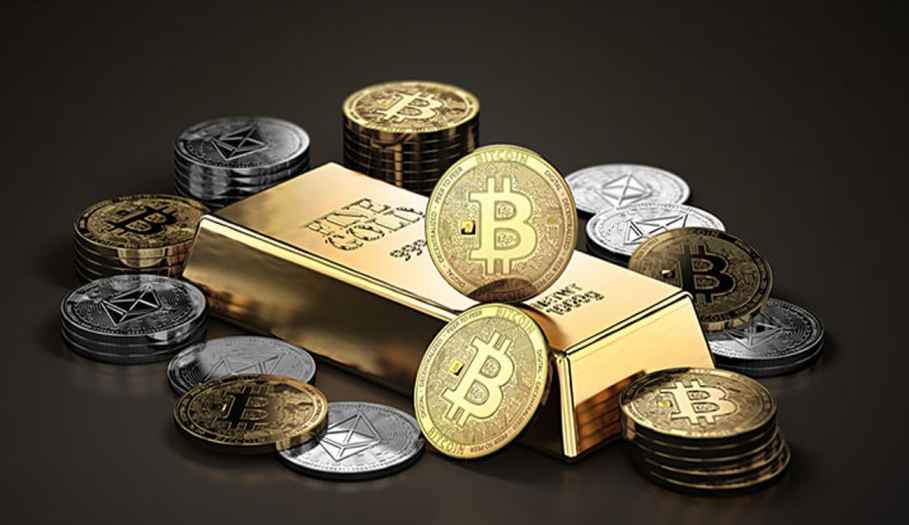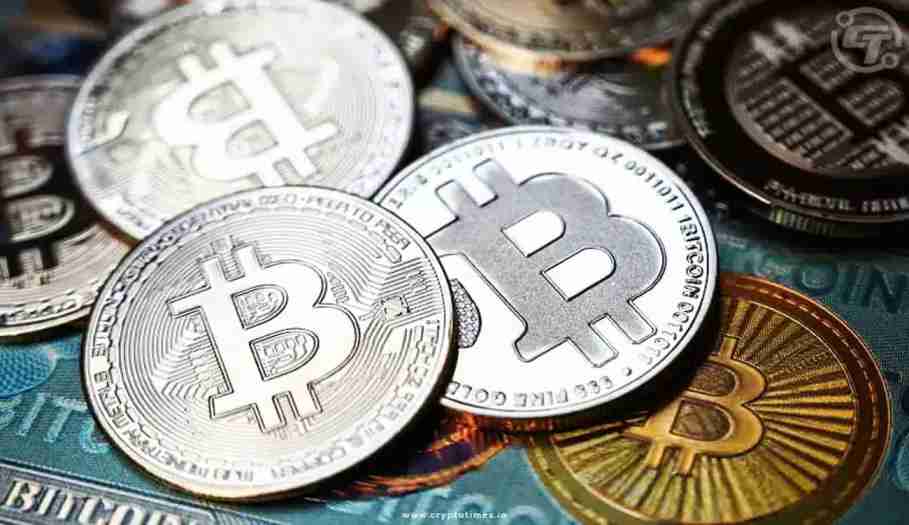Explore the transformative rise of Bitcoin in the U.S. ETF market. Bitcoin outperforms silver and initiates a paradigm shift in investment trends. Explore the financial landscape and its impact on evolving perceptions.
Silver, with its cosmic origins in the dead star, has long been a symbol of wealth. It has also been a symbol of stability throughout human history. However, the traditional precious metals landscape is undergoing a paradigm shift. This shift is happening in the face of a new challenger: Bitcoin The recent approval of bitcoin exchange-traded funds (ETFs) by the US Securities and Exchange Commission (SEC) has brought bitcoin to the forefront of the U.S. ETF market. This move challenges the dominance of silver and gold. This shift marks an important moment in the evolution of investment trends. This calls for a reassessment of the roles of traditional and digital assets in the modern financial ecosystem.
Bitcoin vs. Silver and Gold in the ETF Market
Table of Contents
ToggleBitcoin’s meteoric rise in the ETF cryptocurrency market underscores its growing prominence. It has become a viable alternative investment asset. With $60 billion in assets under management, Bitcoin ETFs have surpassed the size of the world’s largest spot gold ETF. The SPDR Gold Share ETF is now trailing by $3 billion. Additionally, Bitcoin’s market cap of $1.4 trillion makes it the eighth largest asset globally. This feat surpassed silver in market value.
Bitcoin enthusiasts speculate on its potential to challenge gold, which is valued at $14.7 trillion. Forecasts suggest a target price of $300,000 per coin by 2024. The success of Bitcoin ETFs is attributed to the recent rise in the price of Bitcoin. The bitcoin price has reached an all-time high above $72,000. Institutional adoption, highlighted by major banks, offers access to Bitcoin ETFs. This further strengthens Bitcoin’s position in the financial landscape. As Bitcoin continues to gain traction, its performance relative to silver and gold remains of significant interest in the ETF market. The debate surrounding this issue continues among investors and financial analysts.
Trending: How will the spot Bitcoin ETF compare to the S&P 500 ETF?
Historical Significance of Bitcoin ETFs Launch
The launch of Bitcoin ETFs is not just a milestone for the cryptocurrency community. It’s also a historic moment for the broader ETF industry. This event carries implications for the future of cryptocurrency adoption. This has the potential to impact the regulatory landscape surrounding digital assets. The question arises: What are bitcoin futures exchange-traded funds? Will the US approve a bitcoin ETF in 2024?

The Meteoric Rise of Bitcoin in the U.S. ETF Market
Bitcoin’s rise in the cryptocurrency ETF market is remarkable. It recorded an initial $894 million in net inflows in the first three days of trading. This growth points to the growing mainstream acceptance of digital currencies. What factors contributed to this rapid growth, and what are the possible implications for Bitcoin’s future price trajectory? Investors and market watchers are keen to understand the dynamics of this growth. They are particularly interested in its impact on the broader cryptocurrency landscape.
(‘Best Money Market Today’ is eager to provide you with very important information. Press the notification button to get the latest important information provided by ‘Best Money Market Today’.)
Read More: Is Ledger Still a Safe Place to Store My Cryptocurrency?
Grayscale Bitcoin Trust Conversion into an ETF
The conversion of Grayscale Bitcoin Trust to ETFs has played a significant role in the growth of Bitcoin ETF assets. According to Crypto News, this conversion resulted in the immediate accumulation of nearly $30 billion in assets. ETFs offer market advantages over traditional trusts. These benefits include increased liquidity, real-time pricing, and the ability to trade on traditional stock exchanges. The success of this transition raises questions about whether other major cryptocurrency trusts will follow suit. This prompts speculation about whether they will convert to a cryptocurrency ETF structure. This potential shift has the potential to reshape the digital asset investment landscape. This transformation highlights the growing acceptance of ETFs. They are seen as a preferred vehicle for accessing and managing cryptocurrency assets. This emphasizes the evolving role of ETFs in the financial crypto market.
Bitcoin’s Role as a Reserve Asset
Bitcoin’s second position in US commodity-focused ETFs is noteworthy. Bitcoin has surpassed silver in the cryptocurrency market, with nearly $30 billion in assets. This achievement indicates its emerging role as a reserve resource. Institutions and governments are increasingly recognizing the validity of Bitcoin in this capacity. Despite its rapid acceptance, challenges exist. Notably, Bitcoin’s volatility compared to traditional stocks like gold raises concerns. A historic net inflow of $894 million in the first three days of trading underscores a transformative era, according to crypto news. This highlights the exceptionally high demand for Bitcoin exposure. There is an opportunity to reshape the financial landscape. Meanwhile, the challenges call for an ongoing assessment of risk and reward. This is especially true when it comes to accepting Bitcoin as a reserve asset.
Read More: XRP’s Journey: A Continuing Saga
Ophelia Snyder’s Perspective on the Bitcoin ETF Launch
Ophelia Schneider’s optimism about bitcoin’s future in financial markets stems from the ETF launch exceeding expectations. The Bitcoin ETF validates Bitcoin’s role as a reserve product. His statement reflects the changing perception of Bitcoin among institutional investors. It recognizes its growing demand in the ETF cryptocurrency market. This perspective aligns with larger industrial sensibilities. This is evidenced by the significant net inflows in the first three days. This signals institutional recognition of Bitcoin’s transformative potential. Unlike some skeptics, Snyder’s view aligns with a positive trend. This involves Bitcoin’s embrace in mainstream finance.
Conclusion
Bitcoin’s integration into the U.S. ETF market signifies more than growing acceptance; it is a signal of an evolving investment paradigm. As Bitcoin ETFs bridge the gap between the worlds of traditional finance and digital assets, they pave the way for a new era of investing. This era is characterized by the convergence of the digital and the physical. Such convergence is reshaping the pricing landscape. Additionally, it is changing the landscape of trust. Bitcoin’s rise in the ETF market challenges established norms. This calls for a reassessment of the roles played by traditional and digital resources. This happens in the ever-evolving global financial ecosystem.
(‘Best Money Market Today’ is eager to provide you with very important information. Press the notification button to get the latest important information provided by ‘Best Money Market Today’.)
Read More:







